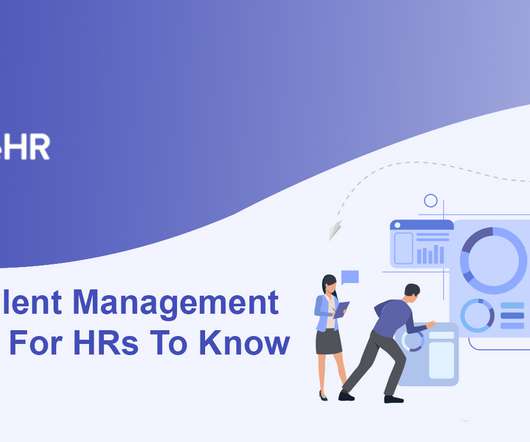How HR Can Create a Comprehensive Talent Strategy
Analytics in HR
MARCH 16, 2023
The importance of having a comprehensive talent strategy It’s important for HR to develop a total talent strategy because it creates a north star for your entire talent team (including talent acquisition, diversity and inclusion , analytics, and learning and development teams).

























Let's personalize your content